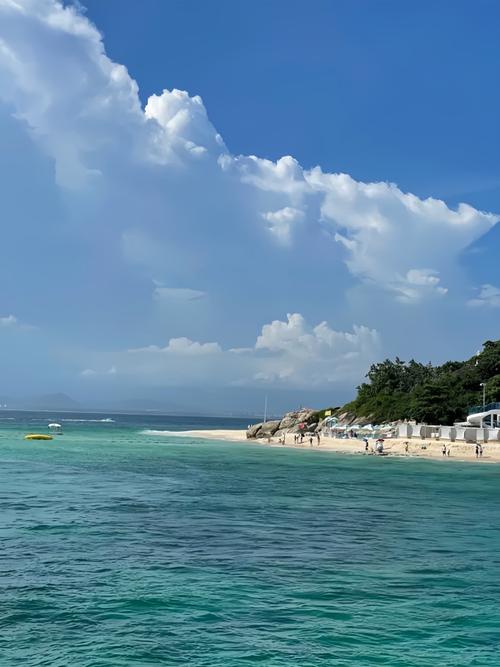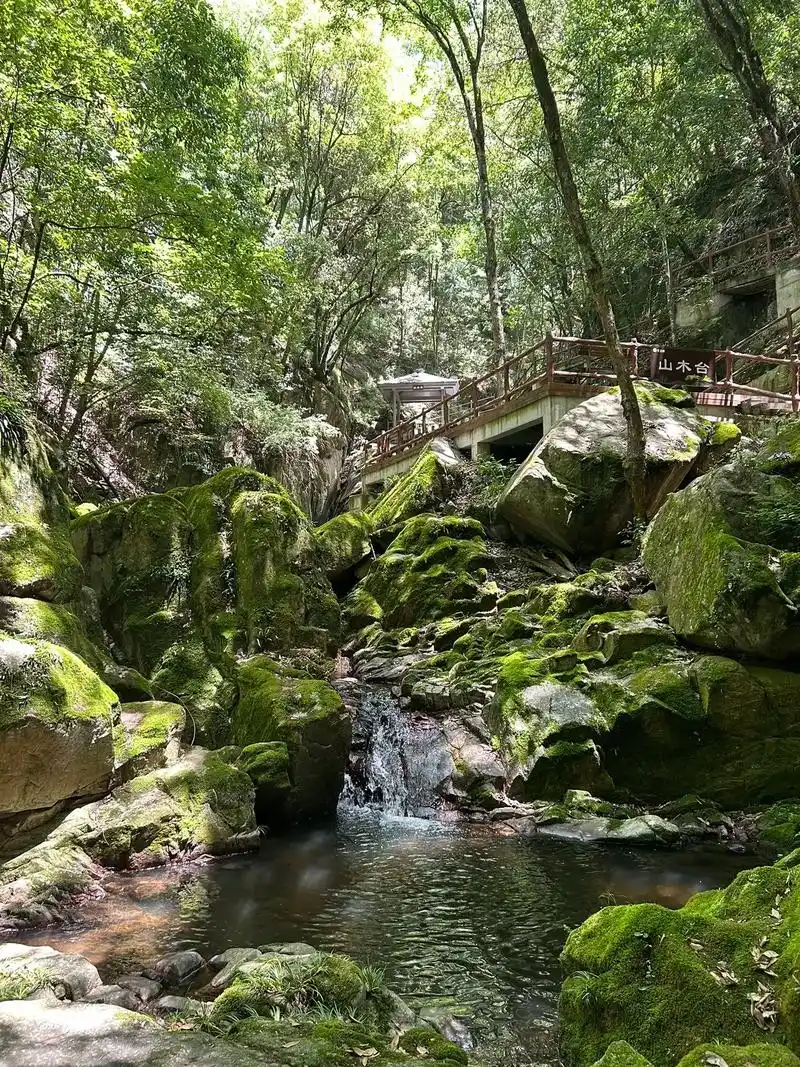China Travel
Affordable China Getaways: Lishui’s Ancient Villages and Ecological Parks for Less
Hidden Gems of Zhejiang: Exploring Lishui’s Ancient Villages and Eco-Parks on a Budget

When travelers dream of China, their minds often drift to the Great Wall snaking across northern mountains, the glittering skyscrapers of Shanghai, or the Terracotta Army standing guard in Xi’an. Yet, beyond these iconic—and often expensive—destinations lies a different China, one of profound tranquility, deep history, and breathtaking natural beauty, all accessible without straining your wallet. In the southeastern province of Zhejiang, the prefecture-level city of Lishui offers an unparalleled getaway for those seeking an authentic experience far from the crowds. It is a place where ancient stone paths tell stories of dynasties past, where mist-clad mountains hide ecological wonders, and where a journey feels both timeless and remarkably affordable.
Lishui’s allure lies in its pristine preservation. Unlike the heavily commercialized ancient towns near Shanghai or Suzhou, many of Lishui’s villages and parks remain refreshingly untouched by mass tourism. This authenticity extends to the cost of travel; accommodation, food, and transportation are a fraction of the price found in China’s mega-cities, making it an ideal destination for budget-conscious travelers, backpackers, and culture enthusiasts alike.
A Journey Through Time: The Ancient Villages
The soul of Lishui is undoubtedly encapsulated in its ancient villages, primarily located in Suichang, Qingtian, and Jingning counties. These are not open-air museums but living, breathing communities where generations have lived for centuries, their traditions and architecture beautifully intact.
Chenghuan Village in Suichang is a masterpiece of Ming and Qing dynasty urban planning. Entering the village feels like stepping into a classical Chinese ink painting. A complex network of cobblestone alleys weaves between overhanging timber-framed houses adorned with intricate wood carvings depicting flowers, myths, and symbols of prosperity. The centerpiece is a series of ancient canals, part of a sophisticated water system that once provided irrigation, drainage, and household water. The gentle gurgle of water is a constant, soothing soundtrack. The cost to enter is minimal, and the real experience is free: simply getting lost in the labyrinthine lanes, watching elderly residents bask in the sun, and observing the slow, rhythmic pace of rural life. A hearty lunch of local vegetables and freshly caught river fish at a family-run guesthouse will cost less than a coffee in London or New York.
Further north, Yangkeng Village offers a different charm. Nestled in a secluded valley, its defining feature is the "Five-Fold Moon" bridge, an elegant stone arch structure that reflects perfectly in the still waters below, creating a complete circle. The village is surrounded by dense bamboo forests and terraced fields, offering countless free hiking opportunities. The air itself is an attraction—crisp, clean, and scented with pine and damp earth. Homestays (农家乐, nóngjiālè) here are exceptionally affordable, often including home-cooked meals for a single, low price. For less than $30 a night, you can have a clean, comfortable room and three delicious meals featuring bamboo shoots, free-range chicken, and local tofu.
For a truly unique cultural experience, Jingning She Ethnic Minority Autonomous County is a must-visit. The She people are one of China’s 55 recognized ethnic minorities, with a distinct language, vibrant clothing, and beautiful folk traditions. Their villages, like Daji Village, are adorned with iconic totem poles and decorated with embroidered banners. The best time to visit is during a festival, such as the "March Third" festival, where you can witness mesmerizing folk singing and dancing without paying a premium for the cultural immersion. The hospitality of the She people is warm and genuine, and staying in a local’s home provides an invaluable insight into a way of life that has endured for centuries.
A Breath of Fresh Air: Lishui’s Ecological Parks
If the villages represent Lishui’s cultural heart, its ecological parks are its lungs—vast expanses of protected wilderness that offer adventure, serenity, and a potent reminder of nature’s grandeur.
The crown jewel is Fengyang Mountain – Baishanzu National Nature Reserve. A UNESCO World Heritage Site as part of China’s Tiantai Mountain range, Baishanzu is a biodiversity hotspot often called a "natural gene bank." It is home to hundreds of rare plant and animal species, including the elusive clouded leopard. For the visitor, this translates into spectacular hiking through old-growth forests, past roaring waterfalls, and alongside crystal-clear streams. The park’s entrance fee is modest, especially considering the world-class scenery it unlocks. You can spend a full day trekking its well-maintained paths, having packed a lunch for mere dollars, and feel a world away from everything. The summit offers breathtaking views of a sea of clouds blanketing endless rolling green peaks—a vista that rivals any in China for a tiny fraction of the cost.
Another natural wonder is the Nanming Mountain Scenic Area, famous for its peculiar danxia landform—red sandstone cliffs eroded into fantastic shapes. A walk through this area is a geological journey. The cost-effective way to enjoy it is to forego the optional cable car and take the walking path, which allows you to fully appreciate the strange rock formations and lush vegetation up close.
For something more curated yet equally stunning, the Lishui Lotus Flower Pond Park (Lianhua Pond) near the city center is a beautiful example of classical Chinese landscape gardening. Locals gather here at dawn for tai chi and in the evenings for walks and square dancing. It’s completely free to enter and is the perfect place to people-watch and soak in the daily life of Lishui’s residents amidst beautiful pavilions, bridges, and, of course, vast ponds of lotuses that bloom spectacularly in summer.
Practical Affordability: Making the Most of Your Trip
The beauty of a Lishui getaway is that its affordability is inherent. Getting there is cheap; a high-speed train from Hangzhou takes roughly two hours and costs under $15. Within Lishui, a network of inexpensive local buses connects the major sites, though the most budget-friendly and adventurous option is to hire a driver for a day to tour multiple villages—splitting the cost between three or four people makes it incredibly cheap.
Food is where you’ll save a fortune while eating like royalty. Lishui’s cuisine is fresh and mountain-based. Must-try dishes include braised bamboo shoot (油焖笋, yóumèn sǔn), clear steam fish (清蒸鱼, qīngzhēng yú) from the Ou River, and She ethnic sticky rice cakes. Street food and small local restaurants serve incredibly flavorful meals for just a few dollars. Accommodation in family-run guesthouses typically ranges from $20 to $40 per night, often including Wi-Fi and meals.
In a world where travel is often synonymous with high costs and crowded sights, Lishui stands apart. It proves that the most rewarding experiences aren’t always the most expensive ones. It offers a chance to connect with China’s profound history, its stunning natural world, and the genuine warmth of its people, all while keeping your budget firmly intact. It’s not just a affordable getaway; it’s a priceless journey into the soul of authentic China.
-
上一篇

Budget China: Zhoushan’s Putuo Mountain Gateway and Seafood for Under $45 a Day
**DiscoveringtheDivineandtheDelicious:ABudgetTraveler’sGuidetoZhousha
-
下一篇

Cheap China Travel: Quzhou’s Jianglang Mountain and Confucian Temples for Budget Travelers
**DiscovertheHiddenGemsofQuzhou:JianglangMountainandConfucianTempleso
相关文章
- Budget China: Fuyang’s Ecological Parks and Rural Scenery for Under $35 a Day
- Cheap Travel in China: Bozhou’s Traditional Medicine Culture and Ancient Streets on a Budget
- Affordable China Destinations: Chizhou’s Jiuhua Mountain and Buddhist Sites on a Budget
- Budget-Friendly China: Huangshan City’s Villages and Tea Plantations on a Shoestring
- Cheap China Travel: Jingdezhen’s Porcelain Culture and Workshops for Less
- Affordable China Getaways: Yingtan’s Longhu Mountain and Taoist Heritage on a Budget
- Budget China: Nanchang’s Tengwang Pavilion and Gan River Night Views for Under $40 a Day
- Cheap Travel in China: Jiujiang’s Poyang Lake and Lushan Mountain Gateway on a Budget
- Affordable China Destinations: Yichun’s(Mingyue Mountain) and Hot Springs for Less
- Budget-Friendly China: Shangrao’s Sanqing Mountain and Ancient Villages on a Shoestring
发表评论
评论列表
- 这篇文章还没有收到评论,赶紧来抢沙发吧~

